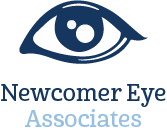 According to experts, 80% of learning is visual, which means that if your child is having difficulty seeing clearly, his or her learning can be affected. Learning at each stage of your child’s life can be different. When your child enters first grade, your local optometrist should check that his or her visual resources develop according to their age, and don’t result in learning disabilities such as reading problems, or hand-eye coordination issues, which are associated with pediatric vision problems.
According to experts, 80% of learning is visual, which means that if your child is having difficulty seeing clearly, his or her learning can be affected. Learning at each stage of your child’s life can be different. When your child enters first grade, your local optometrist should check that his or her visual resources develop according to their age, and don’t result in learning disabilities such as reading problems, or hand-eye coordination issues, which are associated with pediatric vision problems.
Dr. Newcomer recommends visiting our clinic on an annual basis.
Due to rapid vision changes during the growing period, we recommend kids who wear contacts or eyeglasses to visit us once every 12 months for check-up, and prescription adjustment. Check out our child vision FAQ for more information.
Eye Exams in School-Aged Children: Ages 6-18

We’ll examine your kid’s visual acuity carefully during these ages, as problems such as nearsightedness, farsightedness, and astigmatism are common. If we diagnose a need for vision correction, we’ll prescribe eyeglasses or contact lenses. Additionally, we’ll check eye health and eye alignment to inspect for any other abnormalities. Our professional optometrists will use a high-powered lens to look at the inner eye and retinal tissues for any problematic signs.
Proper learning, motor development, reading, and many other skills are dependent upon not only good vision but also the ability of your eyes to work together.
In addition to the symptoms written above, signs of vision problems in older children include:
- Short attention span
- Headaches
- Frequent blinking
- Avoiding reading
- Tilting the head to one side
- Losing their place often while reading
- Double vision
- Poor reading comprehension
Please note that the school nurse and your pediatrician will often do a basic vision screening, checking for acuity, or distance. While these screenings can be a good indicator of whether or not your child needs glasses, pediatricians and nurses do not check for other eye conditions, which can both play a part in your child’s ability to learn, as well as his or her’s long-term ocular health.
During a comprehensive eye exam, your optometrist will check your child’s binocular vision, focusing, peripheral vision, color vision, and hand-eye coordination. Your eye doctor will also check for conditions such as
- Amblyopia (Lazy Eye)
- Pediatric Cataracts
- Double Vision
- Pediatric Glaucoma
- Myopia (Nearsightedness)
- Hyperopia (Farsightedness)
- Strabismus ( Misaligned eyes)
Eye Exam for Kids By Our Eye Doctor In Allentown
Due to the strong link between education and eyesight, it is very important to diagnose any pediatric vision conditions as early as possible. Regular pediatric eye exams are the best way to do this.
Our team of professional optometrists are all highly skilled and experienced in examining and treating kids. We will greet your child warmly, with a gentle and friendly manner. We understand that proper pediatric eye care depends upon a positive relationship between the child and eye doctor, and we are devoted to creating a pleasant experience for kids in our Allentown office.
If the eye doctor does determine that your child has a vision problem, they may discuss a number of therapeutic options such as glasses, contact lenses, or an eye patch, depending on the condition and the doctor’s specialty. Since some conditions are much easier to treat when they are caught early while the eyes are still developing, it is important to diagnose any eye and vision issues as early as possible.
- How often should your child's eyes be examined? What's the difference between a school vision screening and a comprehensive eye exam? and more.
- Taking care of your child's vision before school starts can make all the difference in getting the school year off to a great start!
- Remote learning may cause eye strain, characterized by headaches, blurry vision, dry or itchy eyes, and even double vision
